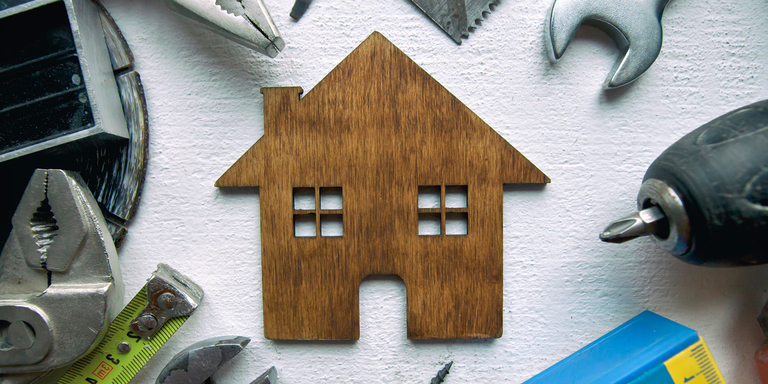Loading...
Tenants
Expert support when you’re renting
Renting your next home should be a smooth and streamlined process.
At Raine & Horne we support you at every stage to find the rental property that suits your needs and your budget – no time wasting, no hassle, just all the help you need to settle into your rental home sooner.
As a fourth-generation 100% Australian-owned family business, Raine & Horne has a reputation for expertise and a commitment to excellence. With over 300 offices around the globe and over 72,000 properties under management, we take the time to understand your rental property needs and aspirations. No matter whether you’re renting for the first time, you’re new to an area, or you’re looking for a professional property manager with local knowledge, Raine & Horne’s rental service can help you enjoy a better rental experience.
Raine & Horne experts understand the real estate market, and we can answer all your questions about the rental process, market rents in your area, and what you can expect as a tenant.
Our professional rental service
Raine & Horne helps you find the perfect rental property solution for your needs backed by:
- An outstanding selection of available rental properties
- Our up-to-date online database that helps you narrow down the choice of properties you’d like to inspect
- A national network of offices – so we've got you covered for a rental property across the country
- The full support of our rental team to inspect properties available for rent
- A streamlined rental application process
- Support negotiating and completing your lease agreement and lodgement of bond
- A prompt and reliable source of assistance to help you settle into and make the most of your rental property.
To enjoy a bigger choice of rental properties, and a better tenant experience, talk to Raine & Horne today – we can help you into your rental home sooner.
Property Management News

Help is at hand for the many Kiwi landlords who have historically been put off by the idea of allowing pets in their rentals viewing them as a damage risk to their properties.
New rules, described as ‘purrfect and pawsitive’ by the government have come into effect this month which provide balance, reassure landlords they will be fairly compensated for any damage and give pet-loving tenants stronger rights and access to a wider range of rentals.
With competition strong for stable, high quality reliable tenants, offering a pet-friendly rental widens the pool of potential rental candidates for landlords. And property owners who welcome pets often find that pet owners are more settled and tend to stay longer, reducing turnover, vacancy rates and providing more consistent rental income. It is a win-win situation as long as new residential tenancies regulations which came into effect this month are carefully followed.
What are the changes and what do they entail?
- Pet bonds for fairness and protection have been introduced allowing property owners to request an additional bond of up to two weeks’ rent to cover any pet-related damage beyond normal wear and tear. This change provides a fair way to protect property owners’ investments while encouraging them to welcome tenants with pets.
- Tenants who wish to keep a pet must obtain written consent from the landlord who can only refuse on reasonable grounds, such as the property’s suitability or concerns about the pet’s breed or behaviour.
- Tenants are also fully liable for any pet-related damage beyond normal wear and tear, encouraging a shared responsibility in maintaining the property.
How property owners can embrace these changes and reap the rewards
- Choose sensible and durable pet-friendly materials when renovating and maintaining your rental property. Look for scratch-resistant flooring covering options and wall paint which is easy to clean.
- Secure your outdoor spaces by ensuring hole-proof fencing and gates are in place and fence off areas you want pets to stay out of. It is important make your expectations around this clear.
- Be open to the idea of adding pet-friendly features like pet doors.
In today’s competitive rental environment, the key to being a being great landlord and running a smooth rental business is finding that sweet spot where the interests of tenants are cared for in a way that benefits them and also profits you as an asset owner seeking attractive long-term returns.
Whether you want to rent, buy or sell a property, don’t hesitate to contact your local Raine & Horne office.

The key to being a great landlord is finding that sweet spot where the interests of tenants are cared for in a way that benefits them as rent payers and profits you as an asset owner seeking attractive long-term returns.
Achieving it means balancing commercial goals with empathy and having the understanding that good tenants treated well can turn into reliable long-term partners that help you make the most from your rental - consistent cash flow, zero vacancy, and strong capital growth. Here are some proven strategies to being a caring and profitable landlord.
Renovate to add value
Investing in renovations can increase rental value and ROI and attract high quality tenants. Cost effective upgrades can include remodelled kitchens and bathrooms, installing heating units and double glazing to meet Healthy Home Standards and adding storage solutions like built-in wardrobes and shelves. Even small upgrades like a coat of paint, new light fittings or modern taps can make your property look fresh and well cared for which are aspects that quality tenants look for.
Setting a competitive rent to attract the right tenants
Carry out market research and consider getting a professional such as a Raine & Horne Property manager to carry out an appraisal. Factor in your property’s unique features, adjust for seasonality and aim for a price point that attracts good tenants but also gives you a fair return. It is important to remember that in New Zealand rent can generally only be increased once a year with 60 days’ written notice.
Get strategic about your lease terms
Go long term and focus on tenant retention. Long term leases offer more predictable returns, reduced vacancy periods and provide good tenants with the stability they seek. If you treat them well, they are more likely to stay and be willing to pay higher rentals down the track knowing they are in a secure situation.
Offer furnished or semi furnished
Furnished and semi furnished rentals can attract higher rents and appeal to professionals and relocating families. If you do find yourself with a vacancy it also allows you to quickly rent out the property short-term on a platform like Airbnb while you look for the next long-term tenant.
Treat tenants as partners
Successful landlords know that tenants are partners in their investment success. When you treat them with respect, they will usually respond by treating your property like their own. Schedule regular maintenance and keep the property in excellent condition. Tenants who feel looked after are far less likely to leave. Reward their reliability with simple gestures – like a ‘thank you’ note and a small gift to build loyalty.
Work with a proactive property manager
A good property manager doesn’t just collect rent and arrange maintenance; they can be critical to the success of an inexperienced or time-poor landlord’s investment journey. At Raine & Horne we think about your long-term returns. We know the local market, how to attract the kind of tenants you want and are expert at ensuring your property is well cared for. Most importantly, we know how to balance tenant relationships with long-term rental performance – giving our landlords peace of mind and consistent results.
Whether you want to rent, buy or sell a property, don’t hesitate to contact your local Raine & Horne office.

If you’re looking to start building an investment portfolio, using the equity you have built up in your home can be a good way to do so. Even better, if you built enough equity you won’t have to save for a hefty deposit. In some situations, you can invest without having to find any additional cash.
If you’re ready to start, the first step is to understand how much you need for a deposit. Then, you can decide whether you could use cash or just equity to fund the purchase.
Calculating the deposit
When buying an existing investment property for rental, you generally need a 30% deposit, which is usually higher than the deposit needed for a home you live in. The type of property you plan to buy affects how much you need for a deposit, so do your homework and check with potential lenders on industry and regulator requirements.
What is equity?
Equity is the difference between what your property is worth according to the market and the bank’s valuations and your outstanding mortgage balance. If your home’s value has increased since you bought it, you might have enough equity to use as a deposit without needing any additional cash. This could especially be the case if you have paid off a good chunk of the mortgage.
If you don’t have enough equity, you might be able to use savings, cash gifts and loan guarantees from relatives to build up your deposit. If you own more than one property, you might also be able to combine equity across them, provided you meet the lending requirements set by your bank or lender. For example, if you have $300,000 of equity in your primary property and $100,000 equity in a rental property, your total equity would be $400,000.
Be aware of the risks
Using loan equity can be a useful way to buy an investment property, but there are risks you should be aware of:
- It can provide greater financial flexibility by allowing you to keep your cash savings intact. However, you need to be comfortable with the potential for market conditions to change and the need to manage the additional debt if property values drop. Additionally, you must be able to make additional payments if interest rates increase.
- It’s important to plan for more than just the deposit and mortgage repayments. Owning an investment property also comes with other ongoing costs such as maintenance, insurance, council rates, and other expenses.
- Also ask yourself: Could you top-up the repayments on your investment property if the rent isn’t enough? Could you cover the costs if your property is vacant for a period, or if unexpected costly repairs are needed?
At the end of the day, using home equity to purchase a quality, well-located investment property can be a promising opportunity to explore with a qualified accountant or licensed financial planner.
Whether you want to buy, sell or rent a property, don’t hesitate to contact your local Raine & Horne office.

Property sales activity has continued to strengthen across the country signalling growing buyer and seller confidence in the market.
Cotality’s latest Housing Chart Pack shows that property sales volumes continued to strengthen in May, with volumes about 5% above the 10-year May average and surpassing average levels for a third consecutive month. Sales volumes for the month were 16% higher than in the same month last year and rose for the 24th time in the past 25 months.
Cotality Chief Property Economist Kelvin Davidson noted that property sales had been trending upwards for around two years and that sales activity was now back at normal or slightly above normal levels. It was now clear that confidence in the market was slowly returning, supported by falling mortgage rates and inflation being back in the 1%-3% target range, he said.
Meanwhile, the latest Trade Me data has identified Fendalton in Christchurch followed by Wellington suburbs Hataitai and Mount Victoria as being the country’s ‘hottest seller markets’ as measured by the shortest ‘for sale’ periods on Trade Me’s website. According to the latest Trade Me report there are more buyers than available homes in the three suburbs which has led to quicker sales times of between 34 and 45 days.
When it came to the strongest buyers’ markets, where demand is lower and buyers have more choice and time to consider options, Masterton in the Wellington region was the strongest with 80 average days advertised on Trade Me per property. The runners up were nearby Carterton and Cambridge in Waikato, which both averaged 78 days on the market.
Raine & Horne National Compliance Manager James Shepherd said that whether people were buyers or sellers now was a great time to get into the market and explore options.
“In many cities and towns vendors will be buoyed by the fact there is more demand for real estate due to stronger market conditions and lower interest rates,” James noted.
Whether you want to buy, sell or rent a property, don’t hesitate to contact your local Raine & Horne office.

Improving elements of your property so you can charge more for rent makes economic sense if the long-term gains will easily offset the improvement costs. However, before embarking on a makeover be sure to do your cost-benefit calculations and consider whether your current rental charge positions your property at the bottom, middle or upper end of the market.
If you are charging below the average rent for similar age and size units, then it is much more likely that renovating your property will help you make significant gains. Here are some of the best improvement options to add value to your investment property.
Boost first impressions
The outside of your property and front yard are the first things potential tenants see. You can enhance first impressions by enhancing curb appeal. Basic landscaping such as adding plants, laying down mulch, trimming hedges and mowing lawns all make a difference. Enhancing the entrance way with lights, paint and potted plants make it more inviting and upgrading the look of windows with modern but relatively inexpensive blinds will make your property more desirable.
Add a bedroom or separate dwelling
Adding an extra bedroom within your existing property floor plan will allow you to target tenants you might not have previously been able to interest and to charge more. Subject to consenting and district plan requirements, there are a number of ways to do this, from dividing a large bedroom into two to converting a study, dining room or second lounge into an extra bedroom.
In rental properties with large back yards owners can consider building a granny flat or turning a garage into a self-contained unit. This effectively turns the property into a two dwelling residence and when rented out considerably increases cashflow and the property’s value.
Refresh the kitchen and/or bathroom
The state and quality of a kitchen and bathroom are often deciding factors for prospective tenants and usually colour how they perceive the entire property. If either are looking old a renovation may be the best way to increase appeal as well as returns.
Kitchens should be clean, modern and functional, but you don’t need to overspend and completely remodel. Small upgrades such as replacing counter tops, installing new cabinet doors and energy efficient appliances as well as a shiny refrigerator and dishwasher can go a long way in transforming your space.
Similarly, a bathroom can be refreshed by replacing fixtures such as taps and showerheads and installing energy efficient modern lights. A new vanity with storage options increases functionality while regrouting existing tiles can make the room look fresher.
Change fixtures and replace flooring
Old doorknobs, ceiling fans, light switches and other aging fittings should not be overlooked. They may seem small but they quickly date and devalue your property. Most of the time, replacing these items is cheap but can quickly add value.
The state of flooring also has a significant impact in your property’s appearance. Carpets can be made to look newer with deep steam cleaning and by polishing boards. Floating floors can also be cost effectively installed by DIY landlords.
Paint, if nothing else
Adding a fresh coat of paint is one of the easiest ways to revitalise the look of a property and is something landlords can do themselves or do the preparation for to lower costs.
Whether you want to buy, sell or rent a property, don’t hesitate to contact your local Raine & Horne office.

Kiwis are famous for their ‘she’ll be right’ attitude. But, when it comes to landlords, being too laid back can mean inadvertently falling foul of the law – unless someone like a friendly Raine & Horne property professional is there to warn and protect them.
Let’s look at two examples. It has been a busy summer, and our ‘do it yourself’ (DIY) landlord is looking to escape the coming winter cold by holidaying in a warmer climate. Our DIY property owner is older, retired and can afford to spend more than a month away, combining it with a side trip to see a family member.
Hotels, and air tickets are booked, and off Mr and Mrs DIY go, except no-one reminded them of what the Residential Tenancies Act (RTA) requires of landlords heading overseas. If a landlord will be outside Aotearoa for more than 21 consecutive days, they must appoint an agent to act on their behalf while they are away.
This is not a ‘nice to do’, it is a legal requirement with penalties of up to $1,500 payable to the tenant, and a fine of up to $3,000 if an infringement notice is issued.
If forewarned, our Mr DIY can ask any friend or acquaintance to act as his representative, but they would need to be well-informed of tenancy obligations to manage the property effectively and meet legal requirements. For many, these may be more onerous than they had bargained on.
The good news is that if Mr DIY hires Raine & Horne as property manager he is fully covered and nothing else needs to be done. Enjoy your holiday!
Example two: Without Raine & Horne, Mr DIY may have forgotten one other important thing. According to the Healthy Homes Standards deadlines, every rental property in New Zealand must have been inspected and be fully compliant from 1 July 2025.
There are no exceptions to this, and any non-complying property cannot be legally rented out. If tenants move out and the property is non-compliant, landlords will be facing an extended vacancy period until everything is up to standard. Non-compliance can also cost a landlord significantly more than just getting repair work done, as the Tenancy Tribunal can impose financial penalties – not to mention the loss of rental income while the repair work is completed.
If Raine & Horne had been retained as Mr DIY’s property manager his rental would have been assessed and any repair work carried out well ahead of the deadline, when it may have been harder to find contractors.
With Raine & Horne on the case Mr DIY could really relax, knowing we have his back, while helping him make the most of his rental asset.
Whether you want to buy, sell or rent a property, don’t hesitate to contact your local Raine & Horne office.


